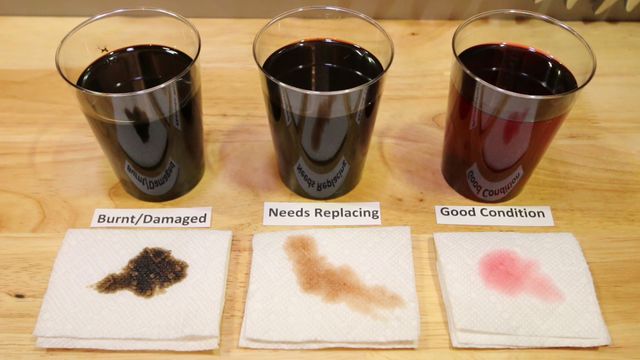Transmission fluid is crucial for the proper functioning of your vehicle’s transmission system. It lubricates the moving parts, cools the transmission, and ensures smooth shifting between gears. Over time, this fluid can become dirty and contaminated, leading to potential issues with your vehicle. In this complete guide, we will explore the signs of dirty transmission fluid, how it affects your vehicle, and what you can do about it.
What is Transmission Fluid?
Transmission fluid is a specially formulated fluid designed to keep the transmission system functioning optimally. It serves multiple purposes, including:
- Lubrication: Reduces friction between moving parts.
- Cooling: Helps maintain the appropriate temperature in the transmission.
- Hydraulic Function: Transmits power from the engine to the wheels.
- Cleaning: Removes debris and contaminants from the transmission system.
Signs of Dirty Transmission Fluid
Recognizing the signs of dirty transmission fluid is essential to maintain your vehicle’s performance. Here are the key indicators:
1. Discolored Fluid
Fresh transmission fluid is typically a bright red or pink color. If you notice that your transmission fluid has turned dark brown or black, this is a significant sign that it is dirty and should be changed.
2. Burnt Smell
Dirty transmission fluid may emit a burnt odor. This smell indicates that the fluid has overheated and is breaking down, which can lead to further transmission damage if not addressed promptly.
3. Slipping Gears
If your vehicle is having trouble staying in gear or frequently slips out of gear, it could be a sign of inadequate lubrication due to dirty fluid. This can lead to more severe transmission issues if left unchecked.
4. Delayed Shifting
Experiencing a delay when shifting from park to drive or between gears can signify that your transmission fluid is dirty or low. This delay can be dangerous and may affect your vehicle’s drivability.
5. Unusual Noises
Grinding, clunking, or whining noises when shifting gears can indicate that the transmission fluid is not providing adequate lubrication. These sounds can be a precursor to more severe transmission problems.
6. Fluid Leaks
If you notice red or brown fluid pooling under your vehicle, it could be a sign of a transmission fluid leak. A leak can lead to low fluid levels, which can cause the fluid to become dirty more quickly.
7. Warning Lights
Many modern vehicles are equipped with transmission warning lights. If this light illuminates on your dashboard, it may indicate an issue with the transmission fluid, including contamination.
How Dirty Transmission Fluid Affects Your Vehicle
Dirty transmission fluid can have several adverse effects on your vehicle:
- Increased Wear and Tear: Contaminated fluid can cause increased friction and wear on transmission components.
- Overheating: Dirty fluid can lead to overheating, which can cause serious damage to the transmission.
- Reduced Performance: Your vehicle may experience sluggish performance and poor acceleration due to inadequate lubrication.
- Expensive Repairs: Ignoring dirty transmission fluid can lead to costly repairs or even the need for a complete transmission replacement.
Maintaining Clean Transmission Fluid
To ensure the longevity and performance of your transmission, it’s crucial to maintain clean transmission fluid. Here are some tips:
1. Regular Fluid Checks
Check your transmission fluid level and condition regularly. Most vehicles have a dipstick for this purpose. Make sure the fluid is at the proper level and is in good condition.
2. Follow Manufacturer Recommendations
Refer to your vehicle’s owner’s manual for the manufacturer’s recommendations on transmission fluid change intervals. Generally, it’s advisable to change the fluid every 30,000 to 60,000 miles.
3. Flush and Replace Fluid
When the fluid is dirty, a transmission flush may be necessary. This process involves removing old fluid and replacing it with new fluid, ensuring the system is clean and functioning correctly.
4. Use Quality Fluid
Always use the transmission fluid recommended by your vehicle’s manufacturer. Using the wrong type of fluid can lead to poor performance and damage.
Recognizing the signs of dirty transmission fluid is essential for maintaining your vehicle’s health. Regular checks, following maintenance schedules, and being aware of the symptoms of dirty fluid can help you avoid costly repairs and ensure your vehicle runs smoothly. If you suspect your transmission fluid is dirty, consult a professional mechanic to address the issue promptly.
By taking care of your transmission fluid, you can extend the life of your transmission and enjoy a smoother driving experience.

